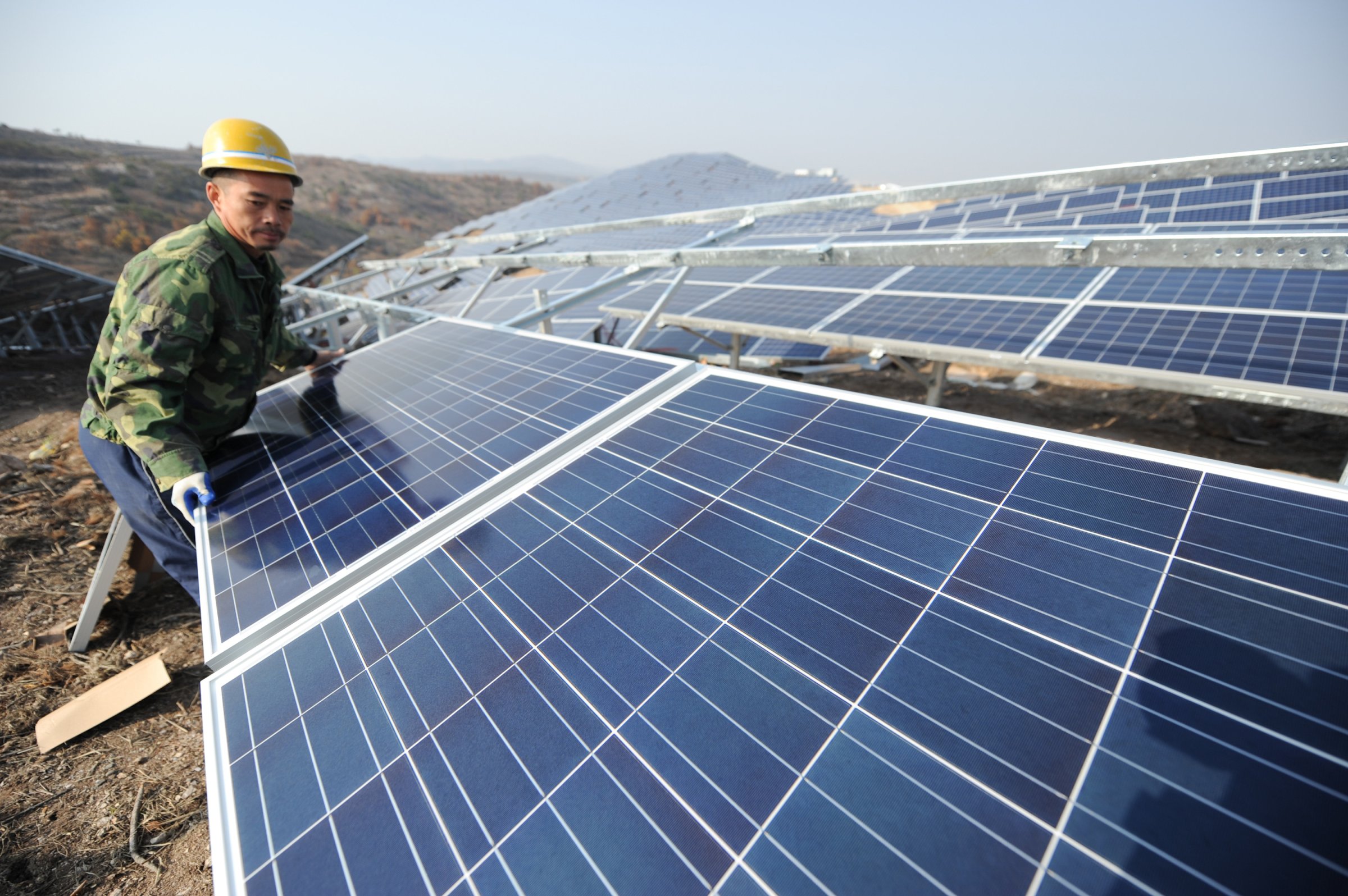
Changes to China’s energy mix amid President Xi Jinping’s push for an “energy revolution” have the potential to accelerate the global transition away from fossil fuels to clean energy sources, according to a new report from the International Energy Agency.
The country has sought to move away from coal and other fossil fuels to address a pollution problem that leads to millions of premature deaths and foster economic development outside of heavy industry. China has also sought to position itself as the global leader in the fight against climate change.
To that end, China will install a third of the new solar and wind power in the coming decades while its coal consumption continues to decline, according to the report. It will also generate a quarter of the growth in global natural gas demand, assuming the country continues to implement current polices and follows through on announced measures. And, despite a concerted push for electric vehicles, the country is expected to become the world’s largest oil consumer around 2030.
Energy shifts in China are felt globally and those developments would reverberate quickly, crippling coal producers that rely on exports to China and expanding the market for clean energy technology in China, according to the report. Much of the clean energy investment could remain in China, however, as a result of the government’s current posture investing billions in a wide range of new energy technology.
The changes in China underscore a broader global transition toward renewable energy sources already underway. The cost of solar and wind power have been reduced by 70% and 25%, respectively, since 2010. Globally, renewables are expected to make up 40% of power generation by 2040.
The United States would benefit from China’s new demand for natural gas as the country expands its exports of the natural resource in the coming years. The U.S. is already a net exporter of natural gas — a trend made possible by fracking and the shale revolution — and is expected to grow its exports. The U.S. is also expected to become a net exporter of oil in the coming decade.
More Must-Reads from TIME
- Donald Trump Is TIME's 2024 Person of the Year
- Why We Chose Trump as Person of the Year
- Is Intermittent Fasting Good or Bad for You?
- The 100 Must-Read Books of 2024
- The 20 Best Christmas TV Episodes
- Column: If Optimism Feels Ridiculous Now, Try Hope
- The Future of Climate Action Is Trade Policy
- Merle Bombardieri Is Helping People Make the Baby Decision
Write to Justin Worland at justin.worland@time.com